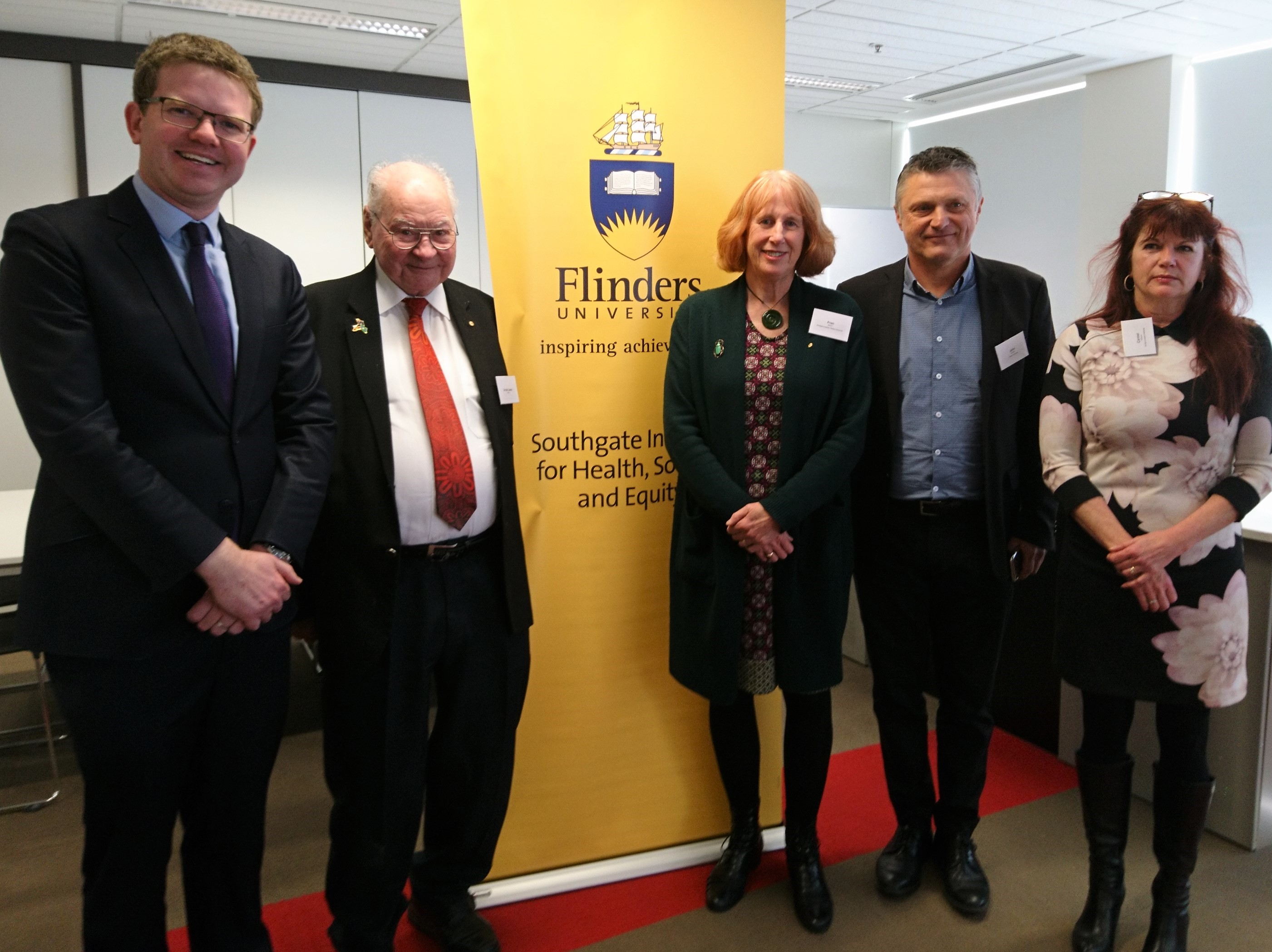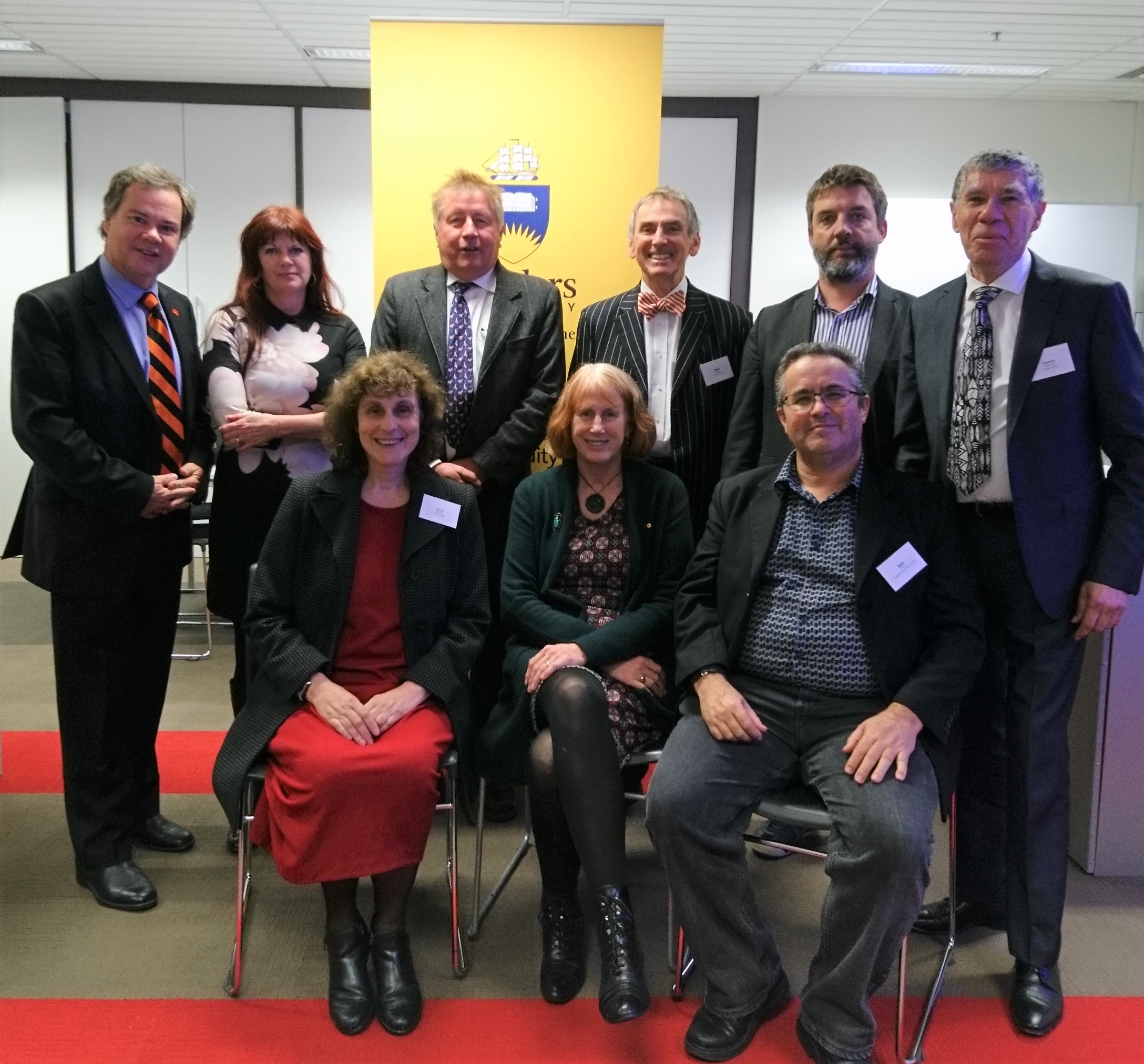
The Southgate Institute held the final forum for the 3-year ARC funded project, Maximising the value of public policy for population well-being on 26 June 2019. This project has sought to increase understanding of how the policies of Australian governments in sectors other than Health contribute to health and health equity. It examined how policy in the justice, urban planning, environment and energy sectors facilitate or obstruct action on social determinants of health and health equity.
The forum was opened by the Honourable Chris Picton MP, Shadow Minister for Health and Wellbeing. Professor Fran Baum, Director of the Southgate Institute presented an overview of the project and Carmel Williams from the Department for Health and Wellbeing then presented on the importance of co-benefits and understanding the drivers of other sectors in intersectoral collaboration. Presentations were then given by Professor Dennis McDermott from La Trobe University and Dr Meng Evans, an intern at SA Health on the data from the project on the justice sector; Professor Colin MacDougall from Flinders University on the energy sector; and Professor Dora Marinova, Curtin University and Dr Michael McGreevy, from the Southgate Institute presented on the environment sector and urban planning respectively. Each sector presentation was followed by an engaging panel discussion, with panel members from a number of advocacy, non-government, academic and government organisations, including among them the Hon Mark Butler MP, Shadow Minister for Climate Change and Energy, John Rawnsley from the Northern Australian Aboriginal Justice Agency, Professor Ian Lowe from Griffith University, Fiona Armstrong from Climate & Health Alliance, Louise Kelly from OARS Community Transitions, Mark Henley from Uniting Communities, and Paul Laris from Western Adelaide Coastal Residents Association, among others. Professor Richard Eccleston acted as Critical Friend for the forum and provided thoughtful and insightful comments in response to the presentations and discussion.
The day was well attended with over 90 people registered and a number live streaming to view all or part of the forum online.
Part 1 : (Session 1 Overview; and Session 2 Justice Sector Policy) – Recording available via this link
Part 2 : (Session 3 Energy Sector Policy; and Session 4 Environment Sector and Urban Planning Policies) – Recording available via this link
Discussion at the forum highlighted the large gap between policy development and policy implementation, the tensions between seeking collective population policy responses and individualism, and the challenges in seeking to bring about change to improve population well-being and address equity. Participants found the day stimulating and enjoyable and there was lots of animated discussion throughout.


